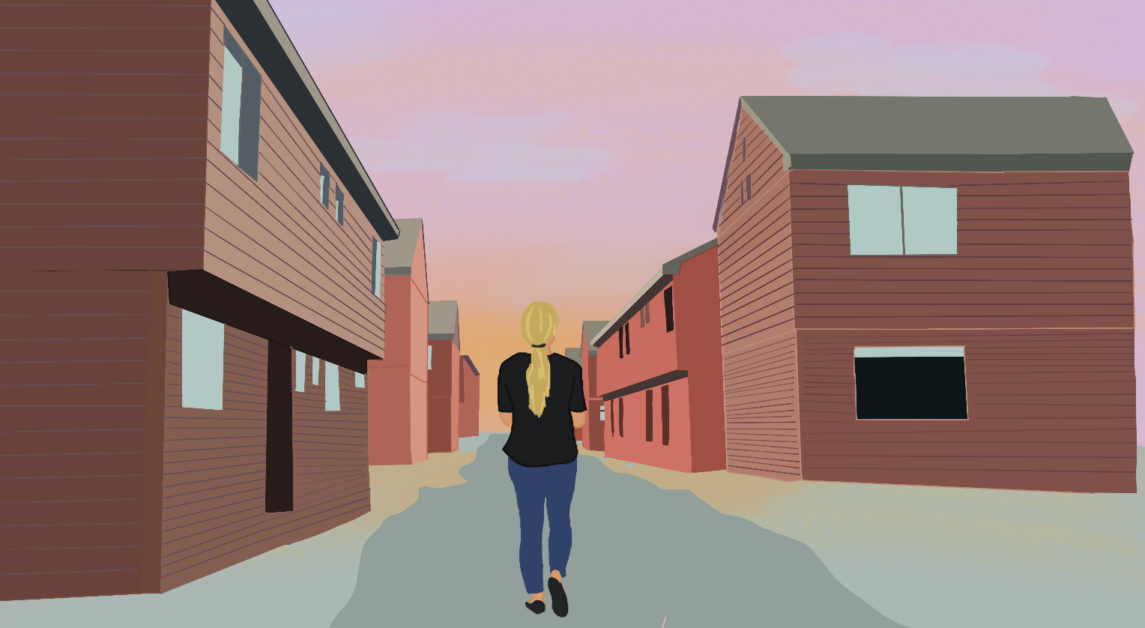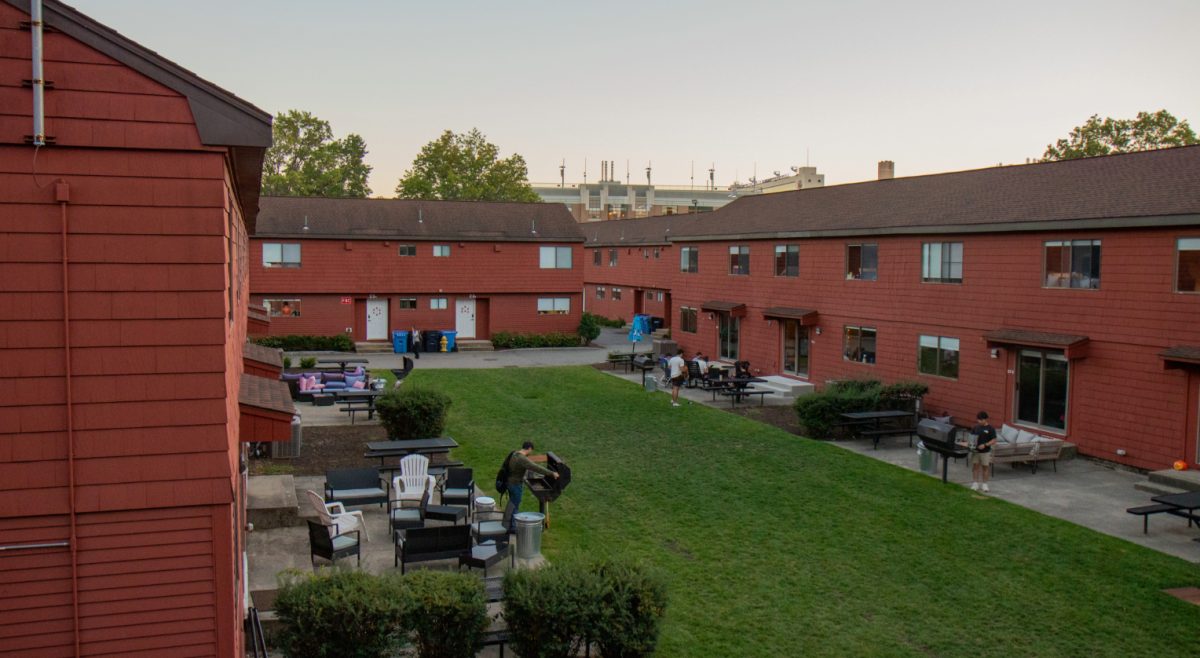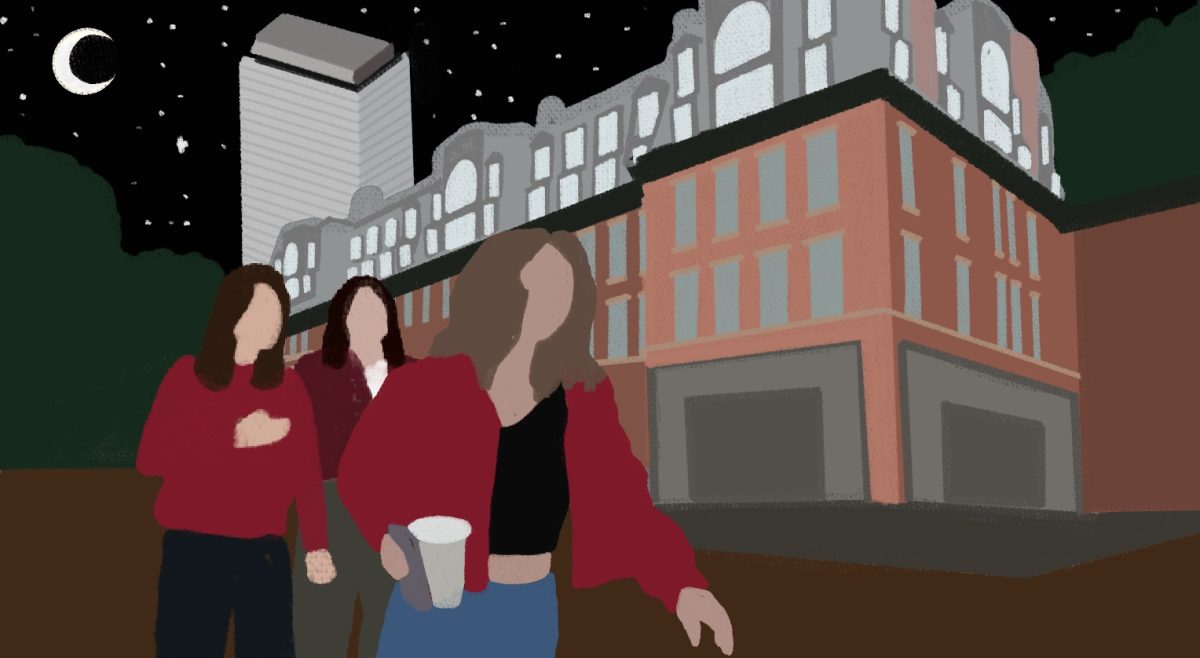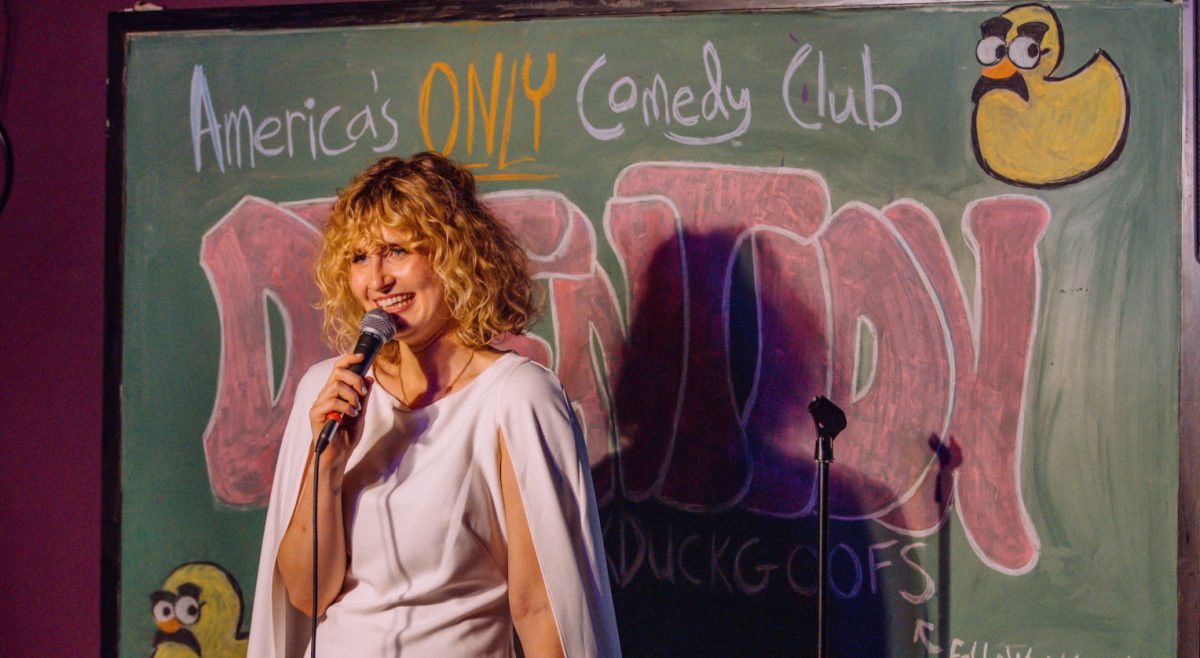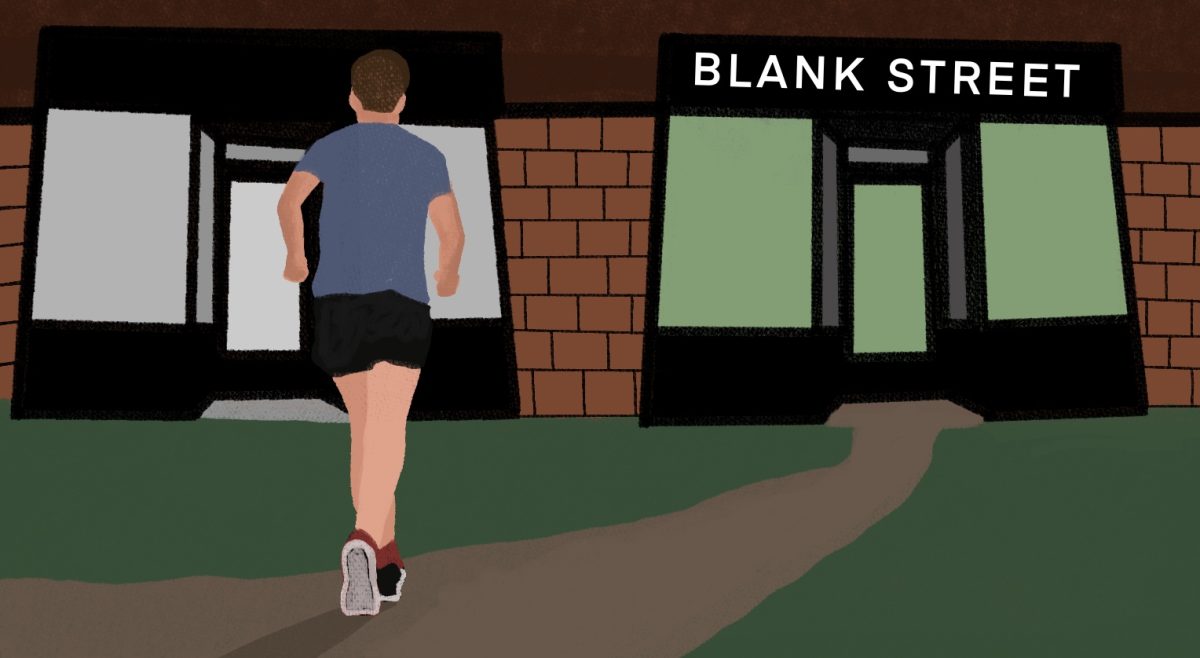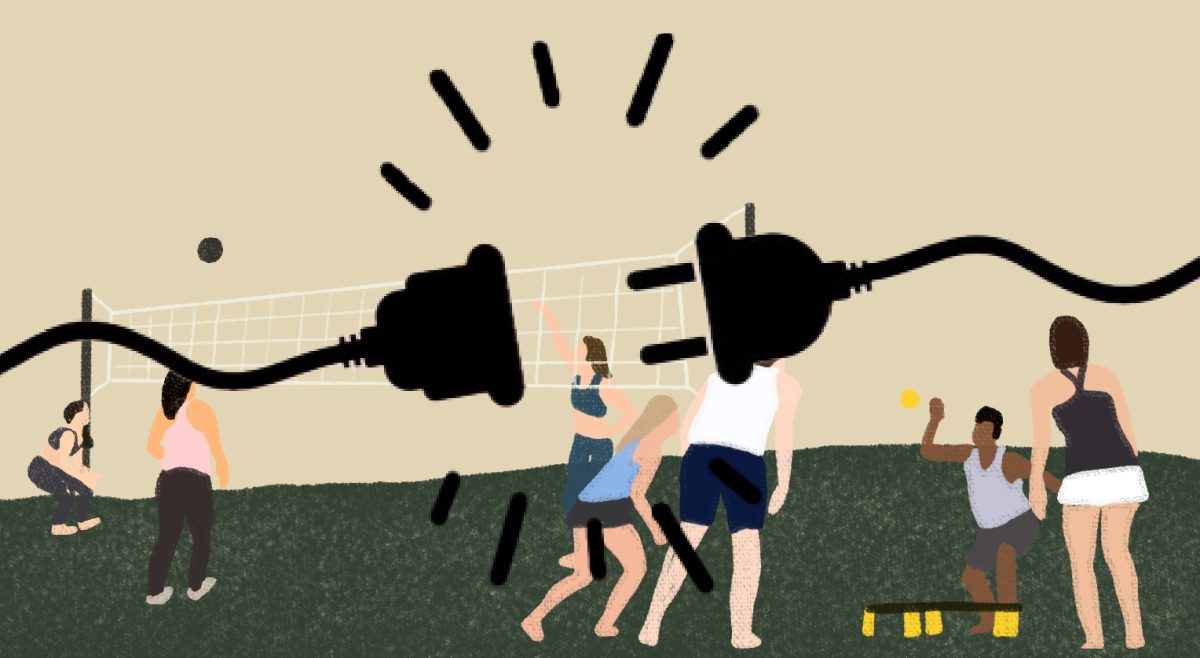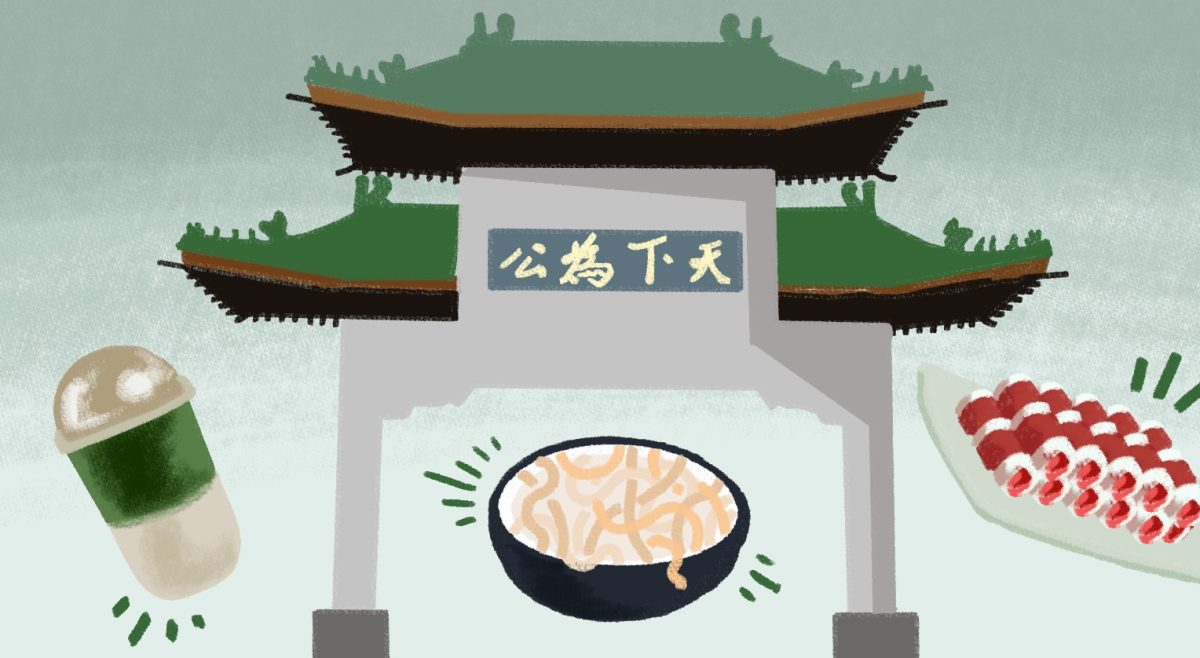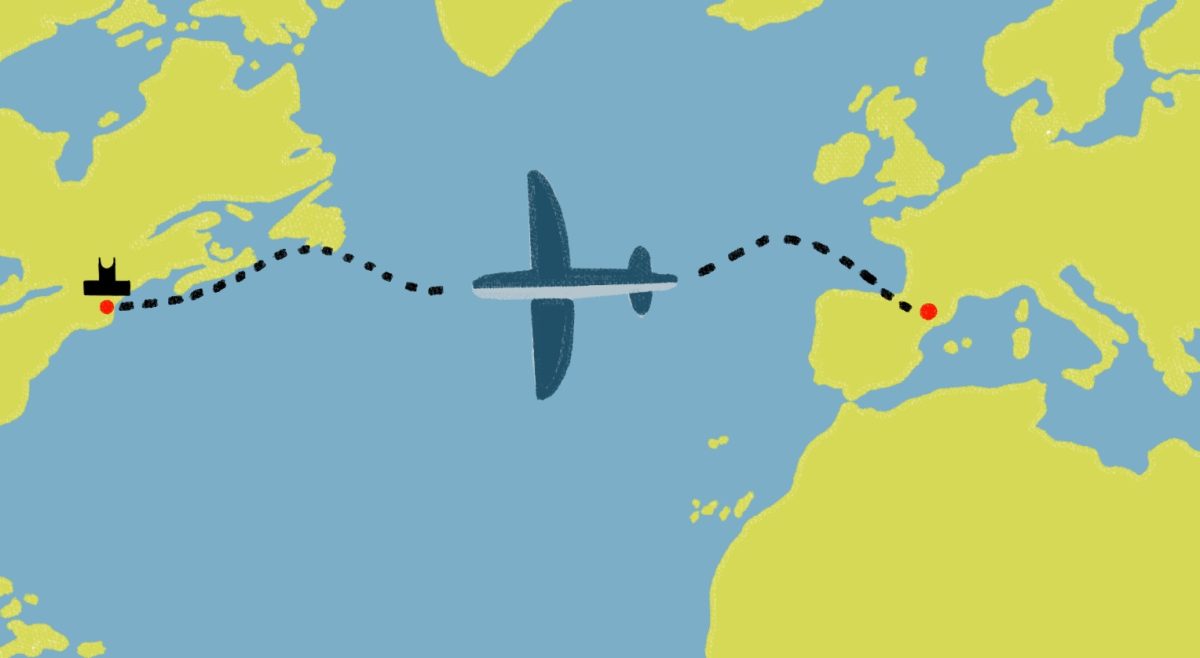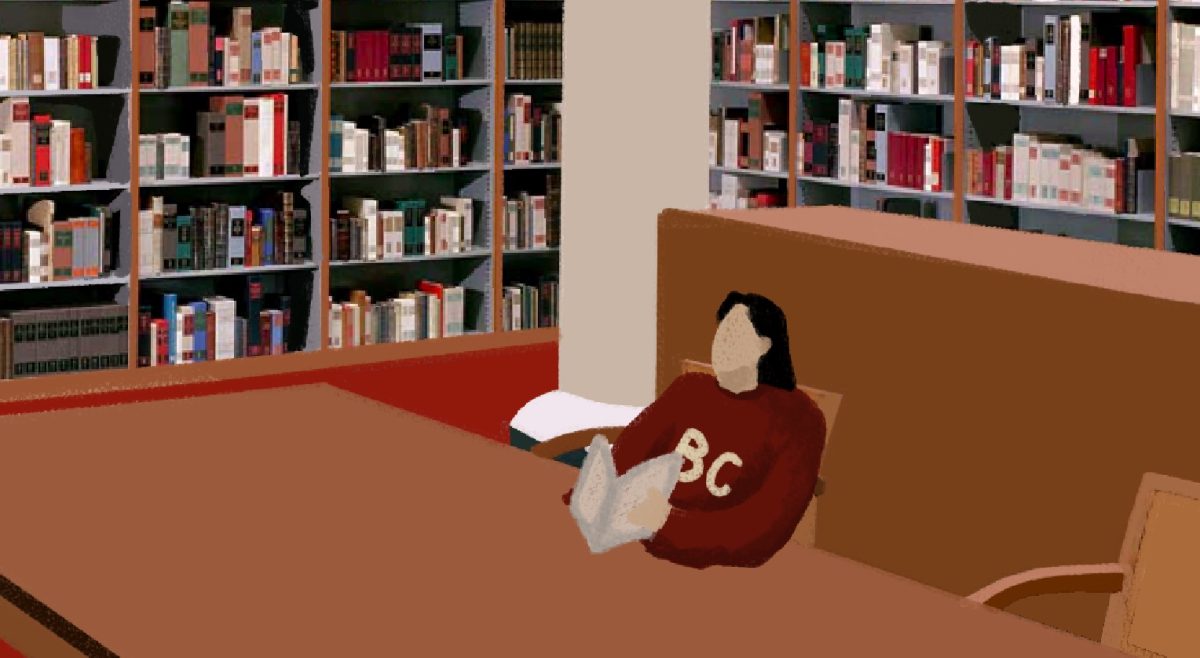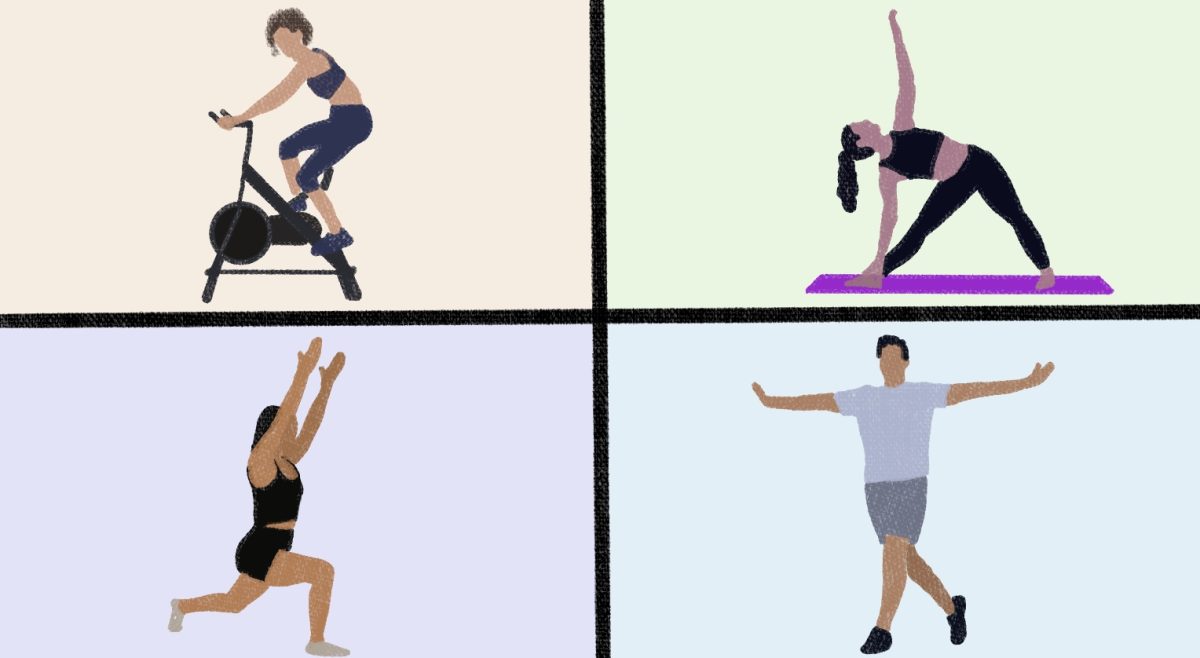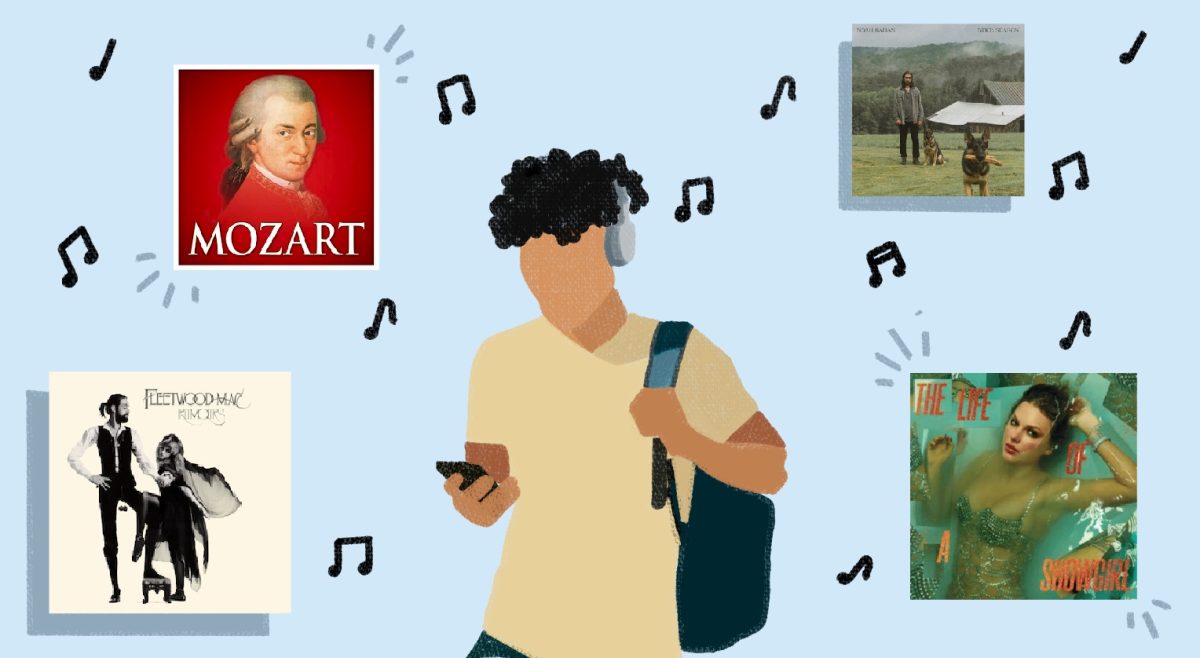I’m a nostalgic senior. Reflecting on my last 19 years as a student, with four of those at Boston College, I can’t help but feel bittersweet as I close a chapter of my life. While I am excited to further my independence as a young adult, there are times when I wish I could wake up on a Saturday and watch Disney Channel until 10 a.m., get driven by my parents to my swim meet, and crank out my math homework in 20 minutes. I miss driving back from high school hockey games with the Rocky Mountains on the horizon, cooking dinner with my family while Frank Sinatra or Zac Brown Band plays in the background, and taking my dog out for a late night walk. I could go on reminiscing on the stories behind each memory. For now, I recognize that within these narratives lies a common theme—gratitude.
Growing up isn’t easy, but no one said it was. No growth comes without grief. In order to grow, we must say goodbye to some chapters of our lives to make room for new ones. In this process, it’s important to acknowledge the nostalgia in order to savor the great memories we have made. But it’s just as important to translate this gratitude into action, looking toward the opportunities that lie ahead of us. So as a nostalgic senior, here are a few of my lessons I’ve learned from my educational formation and how I am using my gratitude for experiences to prepare for the future.
Hone in on Your Vocations
The late BC professor Rev. Michael Himes left a legacy with his philosophy on vocational discernment. Arguing everyone bears multiple vocations—such as being a daughter, student, and friend—Himes believed each role complements one’s formation. His three key questions ask us to identify “what brings you joy,” “what are you good at,” and “who does the world need you to be?”
Joy can be found in the activities where we lose track of time or in the ideas we obsess over. Additionally, we identify our strengths through the merit of others and our successes. The hardest task is identifying the intersection where our joys and strengths unite to benefit the lives of others.
Vocations aren’t simply roles or titles. Vocations can extend beyond these formalities to everyday practices, interests, and values. It can be writing (such as for The Heights), a commitment to recycling, or a passion for service at a local food pantry. Vocations are a way to reach others and make an impact on the well-being of their lives. Himes provides clarity by noting that if we ever feel lost identifying our vocations, remember that the greatest vocation is the one we all share—being a human being.
Cultivating Gratitude for Growth
Humans are eloquently imperfect. We are bound to mess up … and that’s a good thing! It’s not always easy to accept failure. But mistakes are crucial in the process of formation, and they help us unlearn the concept of perfection by accepting that life comes with challenges. Making a mistake is an opportunity to learn more about yourself and the person you want to become. For me, challenges built resilience, expanded perspectives, and endorsed talents and interests I would have never discovered.
Mistakes come in all forms at all stages of life. I’ve said the wrong words, answered the wrong questions, and chosen the wrong paths. Rather than sulk in grief or repress guilt, mistakes offer the opportunity for tremendous growth. It is the courage to accept a misstep and still persevere that leads to development. Mistakes are a beautiful opportunity to grow in resilience. They are a catalyst for growth that unveil opportunities for enrichment and open doorways to knowledge about oneself and the world. Remember: No growth happens without grit!
Find a Conversation Partner
Who are the people you lose track of time talking with? Who are the leaders you admire? Who are the people who cheer you on in victories, nurture you in challenges, call out your faults, and identify opportunities for your growth?
Cherish these people and make them central in your life. Mentors help us identify our vocations and learn within everyday conversations. Their partnership serves to inspire and invigorate, and their leadership sets the tone for the values you want to embrace as you become a young adult. Mentors vary from professors, coaches, advisers, peers, co-workers—they can be anyone who provides you with honest feedback and coaching to aid your personal and professional development.
Often, the people closest to us become great mentors as they help us see things about ourselves we might not recognize. Their feedback is essential to our understanding of our vocations as it helps us see the special nature of our strengths.
Savoring Nostalgia
It’s scary to let go. But in order to grow, we must close a chapter of life. Closing this chapter doesn’t mean forgetting it forever, and it’s important to keep momentos as a tangible way to remember moments of time and carry them into the next steps of life. From letters to trinkets, souvenirs to diplomas, these items are reminders of the lessons and memories that shaped our formation.
Look for the symbols that remain constant in your life. Maybe it’s a value, like empathy or integrity. It could also be something tangible like a stuffed animal or bracelet. Each of these items comforts us as we grow. They supplement our narratives with their support and continuous presence. As we enter into the uncertainty of the future, these tokens of nostalgia act as a source of familiarity that merge the past with the present.
Be Still
I never took mindfulness seriously until BC. As an anxious freshman beginning her undergraduate career during the pandemic, I longed for familiarity. It was in yoga and the Examen where I found great peace, clarity, and comfort in my community. Yoga nourishes my physical health by releasing tension and tenderly realigning my core with my conscience. My spirituality heightens by practicing the Examen. This 15-minute reflection was made famous by Saint Ignatius of Loyola as a part of his Spiritual Exercises and is used as a method to reflect on one’s day in the presence of God. The Examen is rooted in the concept of gratitude, and it challenges me to step back from the busyness of college life and remember the privilege of my experiences.
Mindfulness comes in all different forms. Each of us can benefit from different outlets to rest and nourish the mind. In times of nostalgia, it’s especially important to take self-check-ins. Whether it be individualized experiences like journaling and a walk around the Chestnut Hill Reservoir or opening up to others in late-night roommate conversions—releasing thoughts and feelings vitalizes the soul.
Vulnerability, A Constant Between All Beings
During an office hours appointment freshman year, I shared with my English professor how challenging my economics class was for me. Before I could rant any longer, my professor stopped me by saying, “What would be the point of college if you didn’t challenge yourself? You need to be in vulnerable situations to grow.”
Three years later, his words have stuck with me. We can’t expect growth if we don’t allow room for unfamiliarity. This risk can be frightening, especially when the results remain unclear. The beauty of this uncertainty is that it is shared by all human beings. We all face unknowns and understand the stress rooted in their ambiguity. It’s the courage to accept this anxiety that leads to prosperity. Vulnerability is a great equalizer between all human beings. This authenticity opens a doorway to deeper learning. It builds trust, shows attentiveness, and enlightens gratitude for the gifts and community at hand.
Smile at the friend passing by on the Quad. Cry when you’re homesick. Ask questions when you don’t understand the reading. Share when you feel left out. Tell your crush you like them. Celebrate your successes. Human emotion is vital to our growth. From the classroom to the workplace, hometown to Walsh Hall, emotions are a constant that narrate our lives. Feelings offer an opportunity to learn more about others and the world.
Accepting a Lack of Clarity
No educational experience will provide all the answers. Remember, humans are imperfect. But perhaps that is the beauty of life—learning never stops. We should always be questioning, exploring, and researching. One of my favorite quotes by French poet Charles Baudelaire says, “The most beautiful emotions are the ones we can’t explain.” Baudelaire challenges me to find clarity in the unknown. Perhaps we can’t explain the most beautiful emotions because we need to keep discerning them. We need to keep uncovering their meaning, and this lingering uncertainty keeps us locked into their discovery.
We’ve likely all heard the phrase, “Times flies when you’re having fun.” Just as Himes explains how we can find our vocation by recognizing what curiosities keep us fixated, the same is true with learning. The best learning occurs when we are captured within the present. It’s easy to get caught up in what’s to come and yearn for control. Don’t think about the future too much or stress about the details. Find grace in the present and say yes to life.
Let your intuition guide you. When we deliberate for too long, we’re more likely to make worse choices or have regrets. Instead of letting anxiety drive your consciousness, let gratitude take the wheel. There is always something to be grateful for. I will continue to feel nostalgic and bittersweet toward the passage of time. I will simultaneously be anxious and excited about the future. But within the flux of these emotions, gratitude remains constant.

